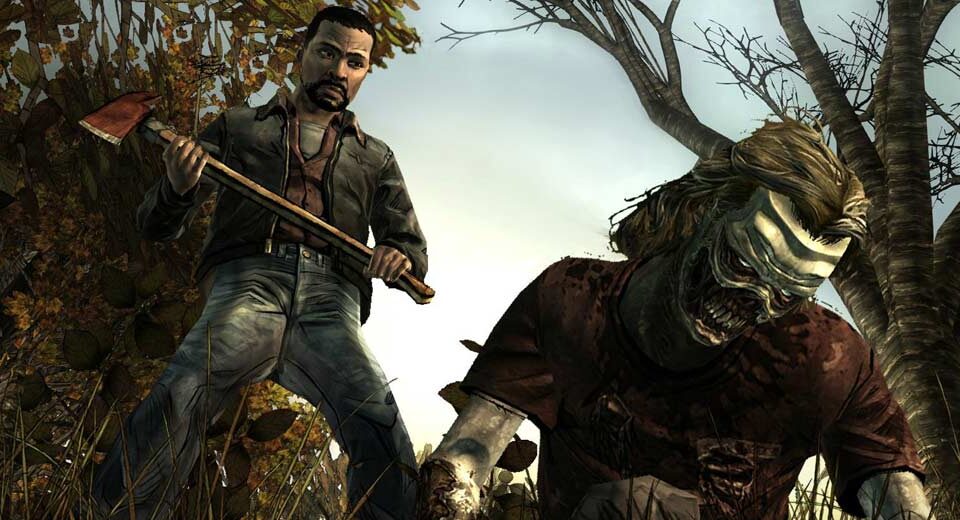That being said, Telltale’s game has nothing to do with the series – other than, you know, the zombies. I’m no big fan of the zombie genre, thought I’ve deeply enjoyed games in which it’s merged with other genres, such as survival. The Walking Dead: The Game is one of such kind. And man, is it good.
I won’t spoil anything of its plot in this analysis, for two reasons. Firstly, I haven’t had time to play it to completion just yet, and I don’t consider myself able to distinguish between what is important and what’s not. Plus, in doing so, I’d completely destroy the narrative, which is fundamental to the experience of the game.
If The Walking Dead is a game about anything, it’s about choices. Few games have impressed me with such a depth within so little complexity. Everything you do matters. Or, at the very least, it appears to matter – which is way more than necessary to deliver a thrilling experience.
Every little line you choose to say, every little road you choose to take, every life you choose to save… it all has meaning and the game makes sure you understand that. Whatever happens, it happens because of what you did. This is not one of those games in which you wonder about the fate of those who crossed your pathways. There’s no place for fairy tales; people die, and, most of the time, you are the one responsible for saving them or leaving them to be eaten. The one thing that this game provides masterfully is the feeling of being the one to blame at all times.
Most developers only introduce choices and consequences as tools to make the game progress, but not Telltale. Being a contemporary point and click, the game doesn’t have many resources to play with. This could give the impression of a redundant, even boring experience; but is nothing further from the truth. The Walking Dead continues to be, for me, one of the best and most moving struggles I’ve ever experienced in a game. Whenever I get down playing, I just can’t stop doing so; it goes on and on, and the deeper you get into it, the richer it gets. Every character is designed well enough to make you share their view on the catastrophe, if only for a brief moment. You get to know them, to like them; and then, you are forced to choose who dies.
The interesting thing, though, comes way after you’ve already chosen. The few times in which you are happy about your choice, the game strikes back at you with a thoughtful comment or a cynical line. Then it hits you: maybe it was wrong what I did back there. And it starts driving you crazy. You start doubting everyone and begin looking after yourself, which, in turn, causes yet another harsh situation. This game never lets you rest: when you’re not the hand of fate, you’re tormented by it.
The Walking Dead is not played on your computer or your console; it’s in your head where the stuff happens. And it’s all because of a little design nugget that many people don’t realize is one of the game’s most powerful strengths: the top left reminders.
If you’ve already played the game, you’ll know what I’m talking about. When you talk to someone, or get to choose something, the game lets you know the effect of it immediately. Like that guy who noticed that odd thing you said. Or that girl who was comforted by your words. When those things happen, a reminder appears at the top left corner on the screen. All of a sudden you understand that your words matter more than you think. The best thing is, it could be just an aesthetic choice. It could have no effect on the game whatsoever, and yet you’d be fooled into thinking so.
That was what ultimately pushed me into considering The Walking Dead to be one of the best examples of what a game can do. Many people will despise it for its comic book look or its simple mechanics, (I almost did), or its supposed relation to the TV series. My only suggestion would be to play it for yourself. It’s not expensive and if you’re interested in video games as a medium, I’d recommend you give it a try. And don’t make a noise – zombies are everywhere, and they are listening.






